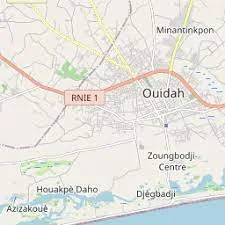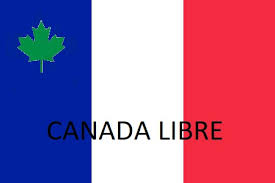JAMAICA, OUIDAH AND THE HAïTIEN LANGUAGE
Bénin in relation with Haïti (with Jamaica just south of Cuba.)
West African nations are at the sources of many populations living presently in the Caribbean region, through the unfortunate slaves who were brought there in colonial times.
It is the case in the island of Jamaica, according to an interesting article (below), especially with Ashanti and Yoruba peoples, among others. It is also the case in the ancient French colony of Saint-Domingue, now the independent country of Haïti, the first black republic of the world. There, though, it was mainly Fon and Yoruba peoples, with smaller contingents.
The fongbe-speaking Fons
are the powerful nation that created the Dahomey kingdom and whose language is
still prevalent over much of southern Bénin. The many Yoruba-like tribes and
subtribes, for their part, inhabits South-West Nigeria (and also large parts of
Bénin and a small portion of Togo). The languages of the Fons and of the
Yorubas, mixed with French for the basic vocabulary, provided the base for what
is now known as the Haïtien language (but that was once considered a mere
créole idiom).
The hybrid Haïtien language was born in a brutal and violent era, dominated by the triangular trade, between Europe, Africa and America. The slaves, mainly Fons and Yorubas, but also from other nations, who eventually found themselves on the plantations of Saint-Domingue, started as warriors for their respective nations. They were made prisoners of war in the course of the many conflicts between African kingdoms. They were brought to the capital of their captors, then were brought in single column to the coast, aptly named la côte des esclaves. It must be said that the diverse portions of the West African shore were then named from the goods that was available there (la côte d'ivoire, la côte de l'or, etc.).
The Fons prisoners of war were brought by the Yorubas to the coast, in what is now Nigeria. As for the Yorubas prisoners of war, they were brought under escort by the kingdom pf Dahomey, usually in Ouidah, but also in other trading stations, in what is now Bénin. There, they were sold, often against weapons to make war (and capture more prisoners). The buyers were European merchants acting usually under the protection of European forts. The slaves were then sent down to the shore, for embarkment on sailing ships bound for Saint-Domingue.
Once there, they were divided between the many plantations, according to who was their respective owners. The slaves involved, mainly Fons and Yorubas, had to decipher commands given to them in a strange, foreign tongue, French. Of course, the slaves had to be able to understand each other, and their captors, a difficult task, given the diverse origin of the slaves, and the huge gap between French, an Indo-European language, and their own tongues, members of the many linguistic families existing in West Africa.
Thus, modern Haïtien develop slowly as a mixture of French, Fongbe and Yoruba, more precisely of French words and West African patterns of speech. Haïtien sound a bit like stones grounding each other, as if these stones were West African consonants squeezing French vowels between them. The written form of Haïtien is difficult to decipher for francophones, since fully recognizable or barely recognizable French words are relatively few and far apart in the printed text.
* * *
* * *
PLUS: @charles.millar3 (Twitter)





Charles, la vision que vous présentez de la genèse du créole haïtien (Haïtien develop slowly as a mixture of French, Fongbe and Yoruba, more precisely of French words and West African patterns of speech) n'est plus largement acceptée aujourd'hui.
RépondreSupprimerMerci de cette précision au sujet de ce texte qui représentait ma compréhension personnelle de cette genèse, basée sur la documentation disponible et aussi sur plusieurs discussions sur le sujet avec des Haïtiens et Haïtennes. Quelle est la version actuellement acceptée par les linguistes de cette genèse?
RépondreSupprimer